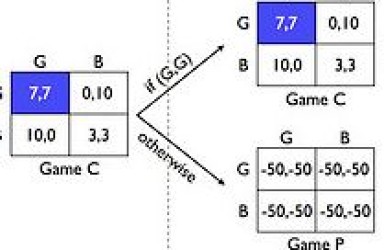The Successes and Failures of the World Bank on Global Poverty
The World Bank rose out of political and security necessity in the US sphere of influence to stabilize Europe. It has grown to adapt through time, both to the new challenges of the late 20th century, as well as to the politically correct speech the growing global civil society has been promoting in the ever globalizing public space.
Decision Makers, Personal Belief, and Foreign Policy
Beliefs do matter in foreign policy as decision-making rarely conforms to demanding rational choice models. The power of ideas in international relations highlights particular human weaknesses, which might help understand a number of seemingly inexplicable decisions. Beliefs, however, are only one part of a wider framework.
How Convincing is the Idea of an International Society at the Centre of the English School Approach?
‘The English School’ initially consisted of an influential group of scholars from around the world who were working in prominent English universities such as Oxford and LSE. The School argues that states do not exist in an anarchic system guided merely by power-politics, but that they possess shared norms, interests, institutions and values which result in the formation of an ‘international society’.
Absolute and Relative Gains in the Real World
The real world is too complicated to be explained by absolute or relative gains alone. Both theories treat states as rational and unitary actors. Due to the diversity of interests, it is not easy to define a unitary national interest in some issues. Consequently, gains per se sometimes cannot be clearly stated.
War Scares and (Nearly) the End of the World: The Euromissiles Crisis of 1977–1987
If not for the influence of the European peace movements and eventual de-escalation at the hand of Mikhail Gorbachev, the prospect of a nuclear war might have been realised.
To what extent is the Panopticon a suitable analogy for power?
Power is pervasive; it belongs to no-one. Its main medium of control is surveillance. Bentham’s Panopticon is, on the whole, a suitable analogy for Michel Foucault’s conception of power. It encompasses the essence of Foucault’s work on power, though it does not represent it in its entirety.
The Strengths and Weaknesses of ‘Securitizing’ Disease
Since the end of the Cold War many academics and politicians have argued for a broadening of the ‘Security Studies’ agenda. The Realist emphasis on military threat seems to be less relevant for much of the world, with the number of inter-state and civil conflicts falling dramatically since 1989 (Human Security Centre, 2005: 1).
Is the United Nations Relevant?
This paper argues that despite its flaws in the political domain and the weaknesses of the Security Council, the UN’s role in sustaining the economic and social development and addressing global issues such as hunger has been exceptionally strong. It is inadequate to focus on the UN’s political realm only and dismiss the other substantive areas of its work such as sustainable development.
Should the (or a) Purpose of IR Theory be to Promote Better Futures?
Theory can never be detached from situational context. Far from even contemplating the possibility of bias-free analysis, I argue that any knowledge claim must always be inherently political in nature, capable of stimulating or withholding change in the social context in which the claimant is embedded. If this (admittedly divisive) assumption is correct, it seems the theorist, including the IR theorist, has two somewhat polar options. He can concentrate on and develop theory that ‘leads to analysis that is pro-status quo and amoral’, or alternatively he can concentrate on the critical evaluation of how we come to see a certain range of possibilities in the international arena.
Conflict and Cooperation over International Rivers: A Global Governance Proposal
Rivers are an important source of water for the majority of the world’s people. It is impossible to imagine a world that functions without enough water for everyone, and in which major rivers are being rapidly depleted. This paper will outline the current governance of international rivers.




